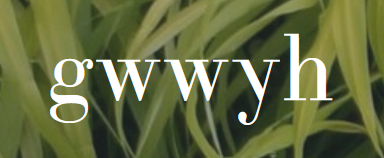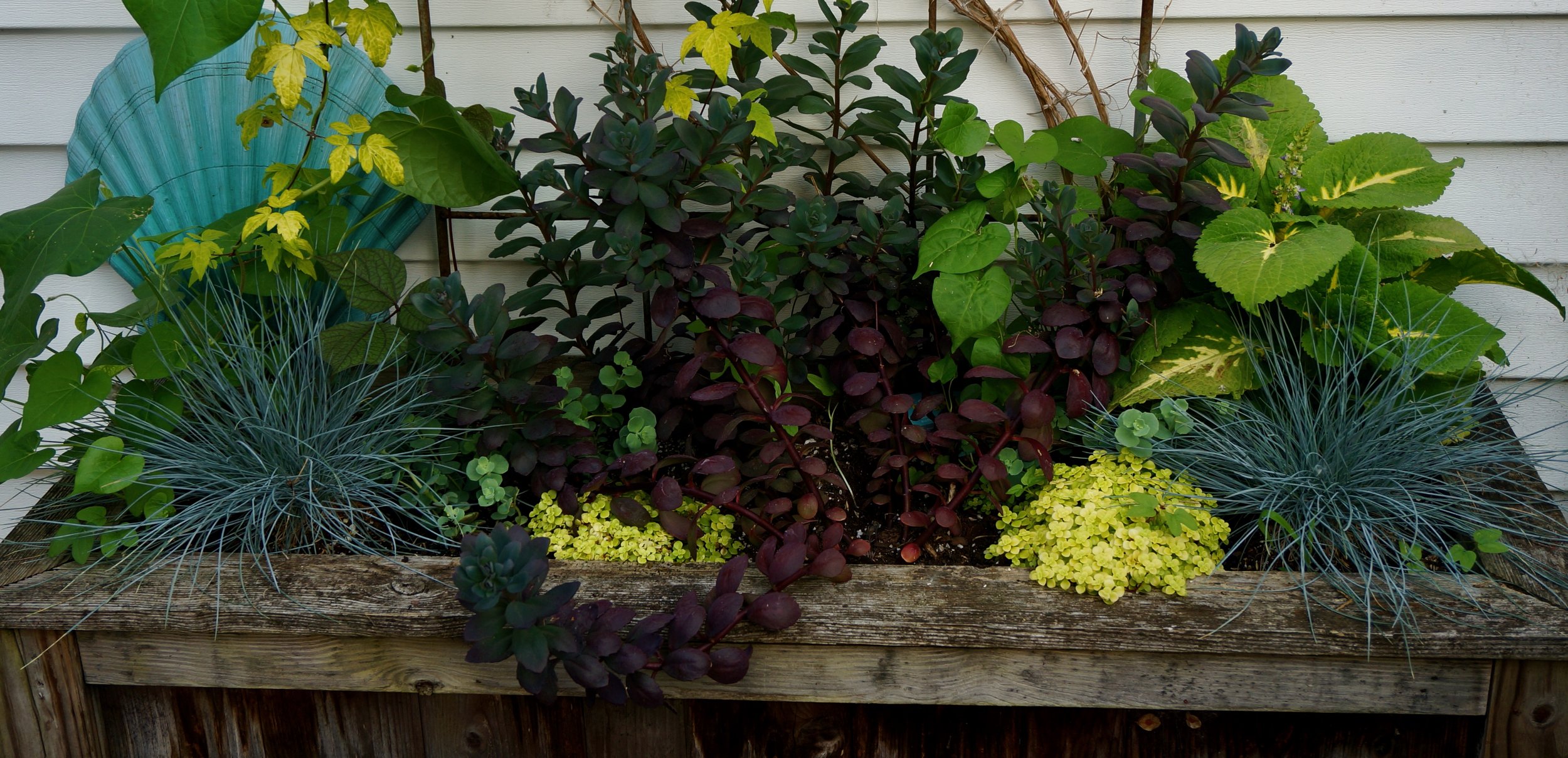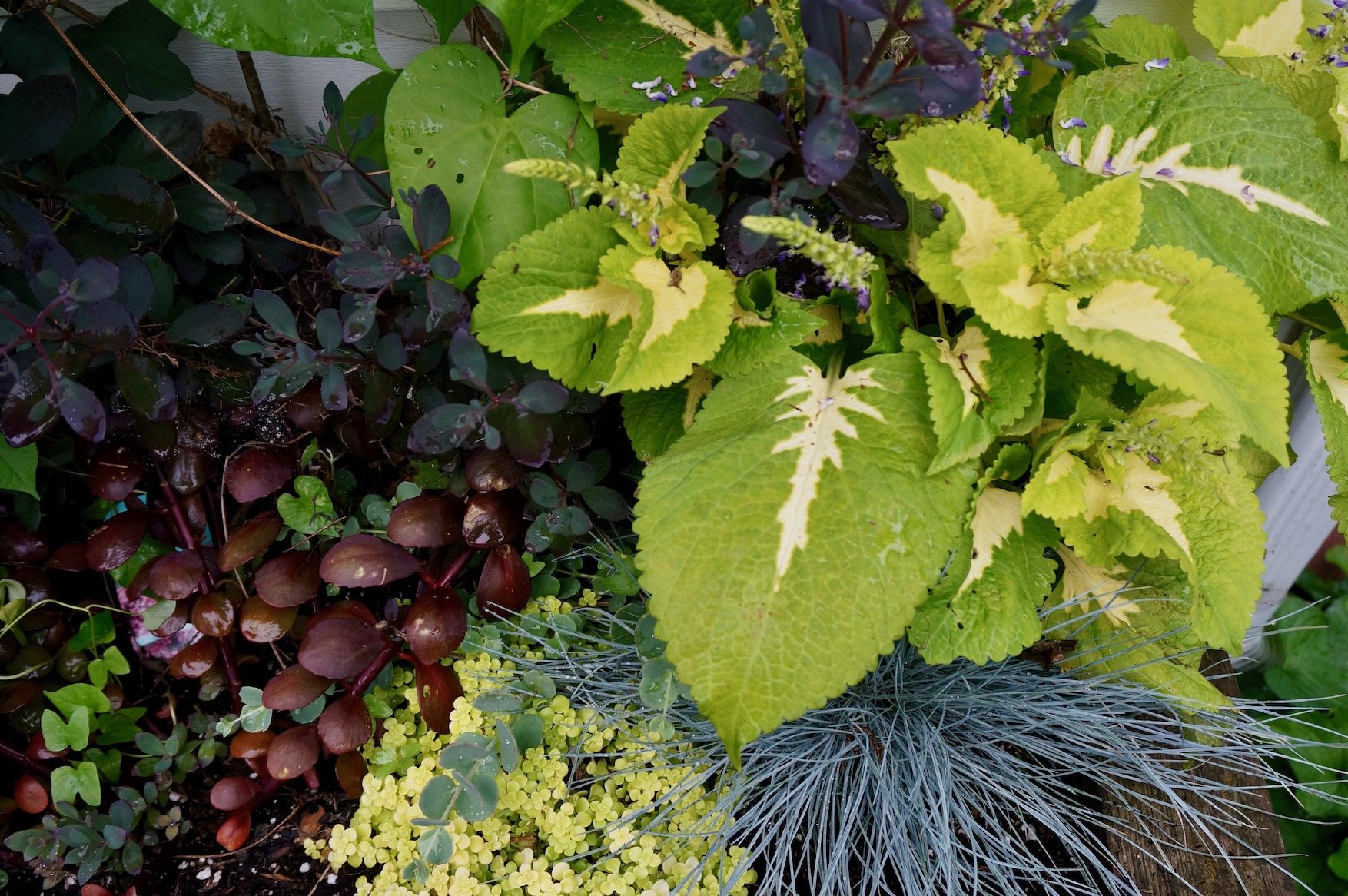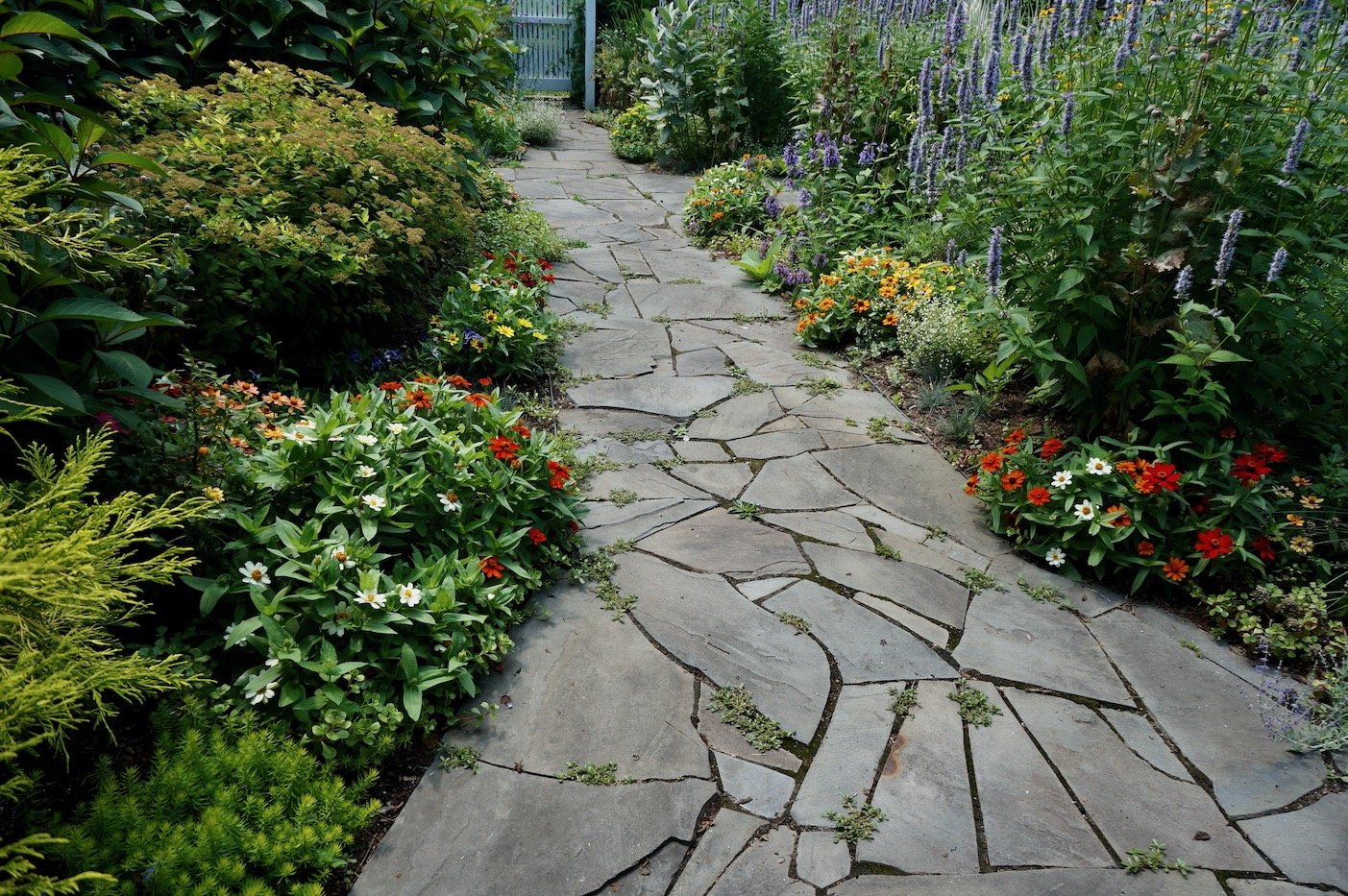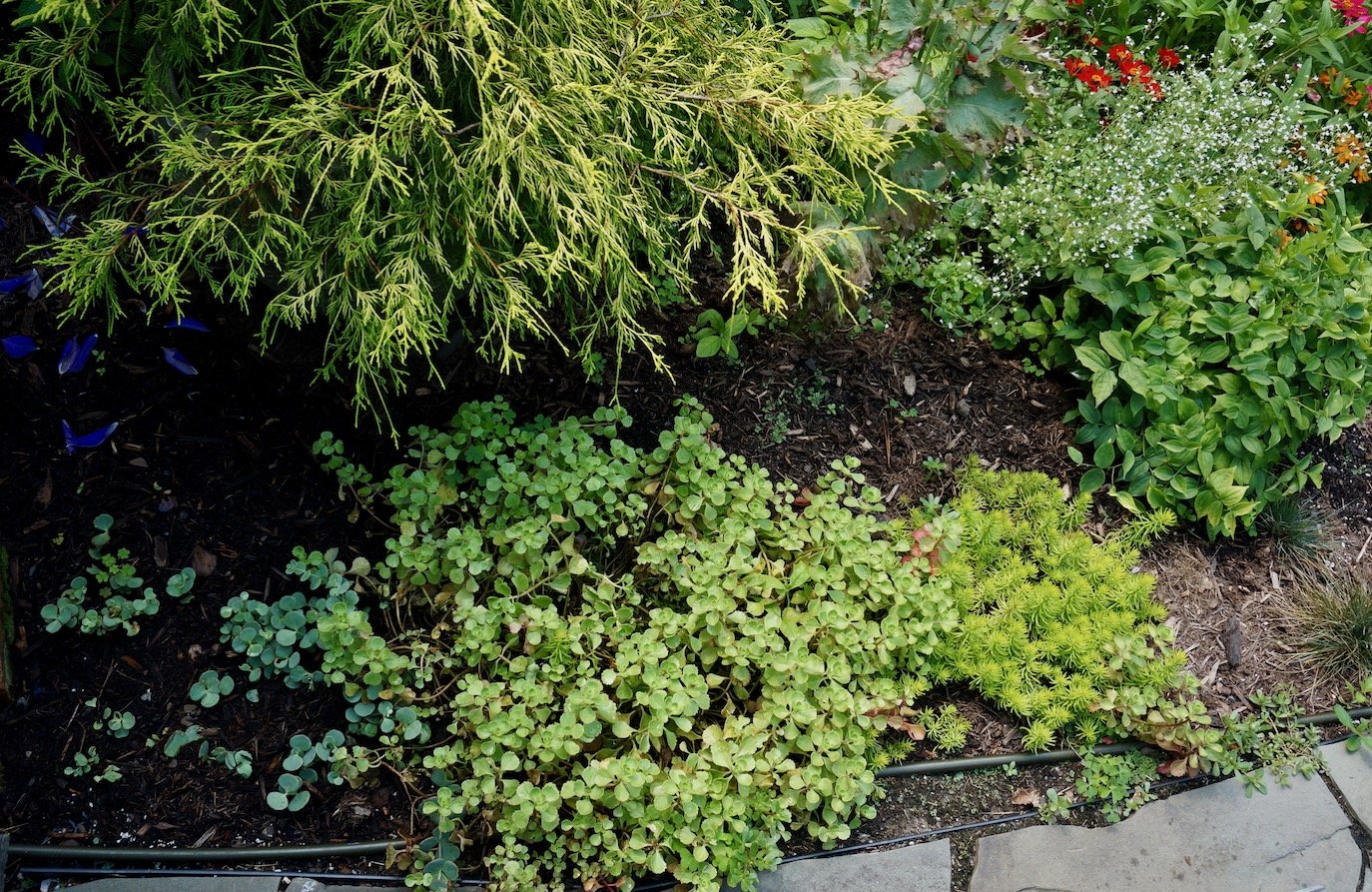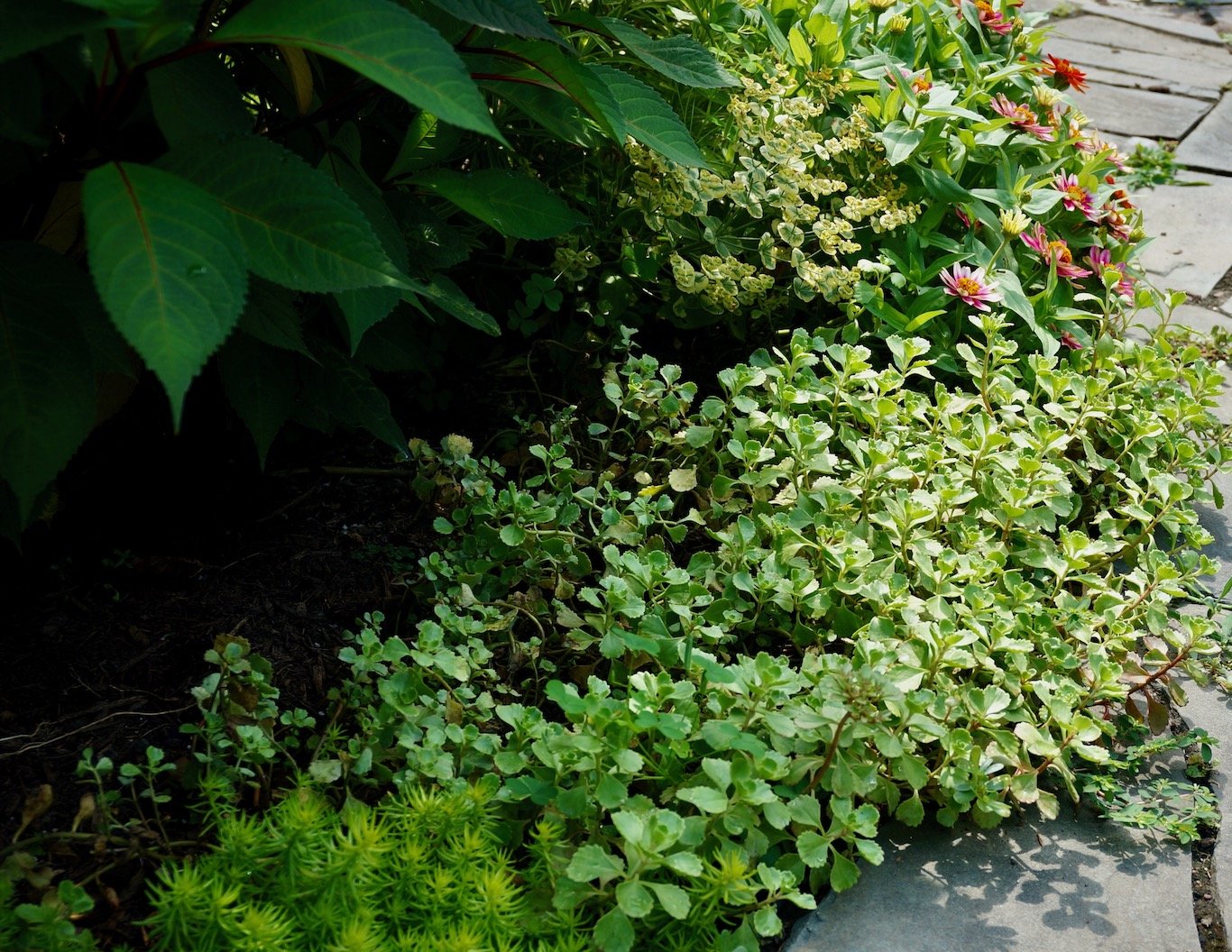Sizzling sedum combinations - How to create an easy wow in the garden
I’ll be honest, I never thought much about sedums until this summer. Now I’m hooked on them. They check all the boxes - easy, attractive, low maintenance, resilient and tolerant of poor soil.
My fascination began when I saw them artfully mingled in a friend's rock garden. While I had used them in the past —I planted larger varieties like Sedum 'Autumn Joy' and 'Purple Emperor'—they flopped about too to suit me. The smaller ones had escaped my notice. That all changed when I encountered the captivating tapestry of low-growing sedums my friend had skillfully woven together. Inspired by his artistry, I knew I had to give them a shot. My first experiment began in a container.
Container experiments: My first candidate - a little chunk of Sedum 'Boogie Woogie,’ my friend dug up for me.
Unsure about where to plant this little charmer, I put it in a container, pairing it up with ‘Festuca ‘Elijah Blue’, Sedum spurium ‘Red Carpet’, Heuchera ‘Peach Flambe’ and a burgundy Coleus. It’s in a little bit of shade here, the green and gold markings would be more pronounced in the sun.
To amplify the green and gold foliage, I tucked Sedum ‘Ogon’ into the bottom right corner of the container. Although this is technically an annual in my zone 5 garden (hardiness zone 7-9), I couldn’t resist it’s intense color and texture.
I continued the container theme and planted two more with a similar color palette. Sedum ‘Plum Dazzle’ is hogging center stage in the one below. I knew it would probably flop, but I was sucked in by the dark purple foliage. If I transplant it to the garden, I’ll give it the Chelsea chop to keep it in check. I kind of like the way it crawls through the other foliage here though.
In the above photo, Sedum cauticolum ‘Lidakense’(gray foliage) is peeking out beneath ‘Plum Dazzle,’ ‘Elijah Blue’ and a variegated green and white Coleus. I’m growing it for the glaucous blue-gray foliage but I guess I should have assigned it different roommates, this slower growing sedum is having a hard time keeping up with the competition.
Sedum ‘Rosy Cheeks’ is calling the shots in the above container. Its delicate, serrated foliage is a distinctive addition to any container or garden. It seems to be holding its own alongside Sedum spurium ‘Red Carpet’ - a fast grower that would take over the whole show if I let it.
You can see how it’s horning in on the other plants. I won’t be inviting this guy back to the party!
The top photo shows two more polite guests; Sedum japonica ‘Tokyo Sun’ (an annual, hardiness zone 10) and Sedum cauticolum ‘Lidakense’ paired up with Pennisetum rubrum and Dichondra argentea 'Silver Falls' - also annuals.
I haven’t had much luck getting anything to live in the above shallow containers because they dry out so fast, but Sedum spurium ‘Red Carpet’ seems to like it just fine. In fact, it’s coloring up more in this bone dry container. This is obviously a die hard sedum you can plant anywhere. Behind it, Sedum ‘Ogon’ is not as tolerant. It seems to be developing bare spots - probably due to drying out.
Garden experiments: In my garden, small sedums have also proven to be a reliable and attractive choice. Following in my friend’s footsteps, my goal was to create a mass of colors and textures in the borders of these four beds. I planted plugs and used five to six plants per group. Clumps of Zinnia elegant ‘Profusion’ (dwarf 12-18”) give it a pop of color so it doesn’t look bare as they grow in.
They all grow at different rates, something I didn’t account for (but should have) when I planted them. The photo of the grouping below tells the story.
Sedum spurium ‘Red Carpet’ - A rambunctious little devil. It’s more of a ground-cover that would fare better by itself or with something equally aggressive. Very happy in ridiculously hot, dry conditions.
Sedum ‘Angelina’ - This is a little slower to get established, but I’m convinced it could give ‘Red Carpet’ a run for its money. It’s easy to pull out though, and tolerant of other plants growing on top of it.
Sedum cauticolum ‘Lidakense’ - One of the slower growing small sedums that stays in its lane. I planted it for the glaucous foliage, raspberry pink flowers and tidy mounded shape. I can’t wait to see it flower.
Before my sedum craze set in, it never occurred to me how useful they could be. In the garden, they make an attractive, resilient border. In containers, you can appreciate each one’s unique charm and character. When I embarked on this experiment, I had no idea how addicting it would be. Planting sedums is like eating potato chips—it's hard to stop at one! Each one adds their own personality, reminding me that sometimes the smallest plants can bring the greatest delight.
